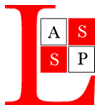Vous êtes ici :
- Accueil
- Actus
- Actualités
- Conférence,
- Recherche,
Building a geopolitical Europe in a changing global order
Publié le 16 décembre 2024
–
Mis à jour le 20 décembre 2024
Date(s)
le 10 janvier 2025
de 14h à 16h
Lieu(x)
Manufacture des tabacs
Salle MB402-404
avec Ruth Ferrero Turrion, professeure à l’Université Complutense de Madrid
Since Russia's invasion of Ukraine, the EU has faced several significant challenges. One of the biggest has been overcoming its dependencies, particularly in areas like military capabilities, supply chains, and energy security. Achieving strategic autonomy has become a top priority on the EU's political agenda. The EU's unanimous political response to Russia's aggression marked a historic moment in European integration, as decisions of this magnitude had never been made before.
In this lecture, I will highlight how quickly the EU has evolved in areas that were not at the forefront of the agenda before 2020. The COVID-19 pandemic and the war in Ukraine have fundamentally altered Europe's nature and goals. Reforms, the potential enlargement of the Union, reindustrialization efforts, and the creation of a European defense force are just some of the changes taking place. One of the major challenges is transforming the EU from a more passive actor into a more assertive one on the global stage. Another challenge lies in dealing with the crisis of liberal democracy that is affecting our societies.
These transformations are pushing Europe toward becoming something entirely different from what it has traditionally been. The key question is: what will be sacrificed during this transition?
In this lecture, I will highlight how quickly the EU has evolved in areas that were not at the forefront of the agenda before 2020. The COVID-19 pandemic and the war in Ukraine have fundamentally altered Europe's nature and goals. Reforms, the potential enlargement of the Union, reindustrialization efforts, and the creation of a European defense force are just some of the changes taking place. One of the major challenges is transforming the EU from a more passive actor into a more assertive one on the global stage. Another challenge lies in dealing with the crisis of liberal democracy that is affecting our societies.
These transformations are pushing Europe toward becoming something entirely different from what it has traditionally been. The key question is: what will be sacrificed during this transition?
